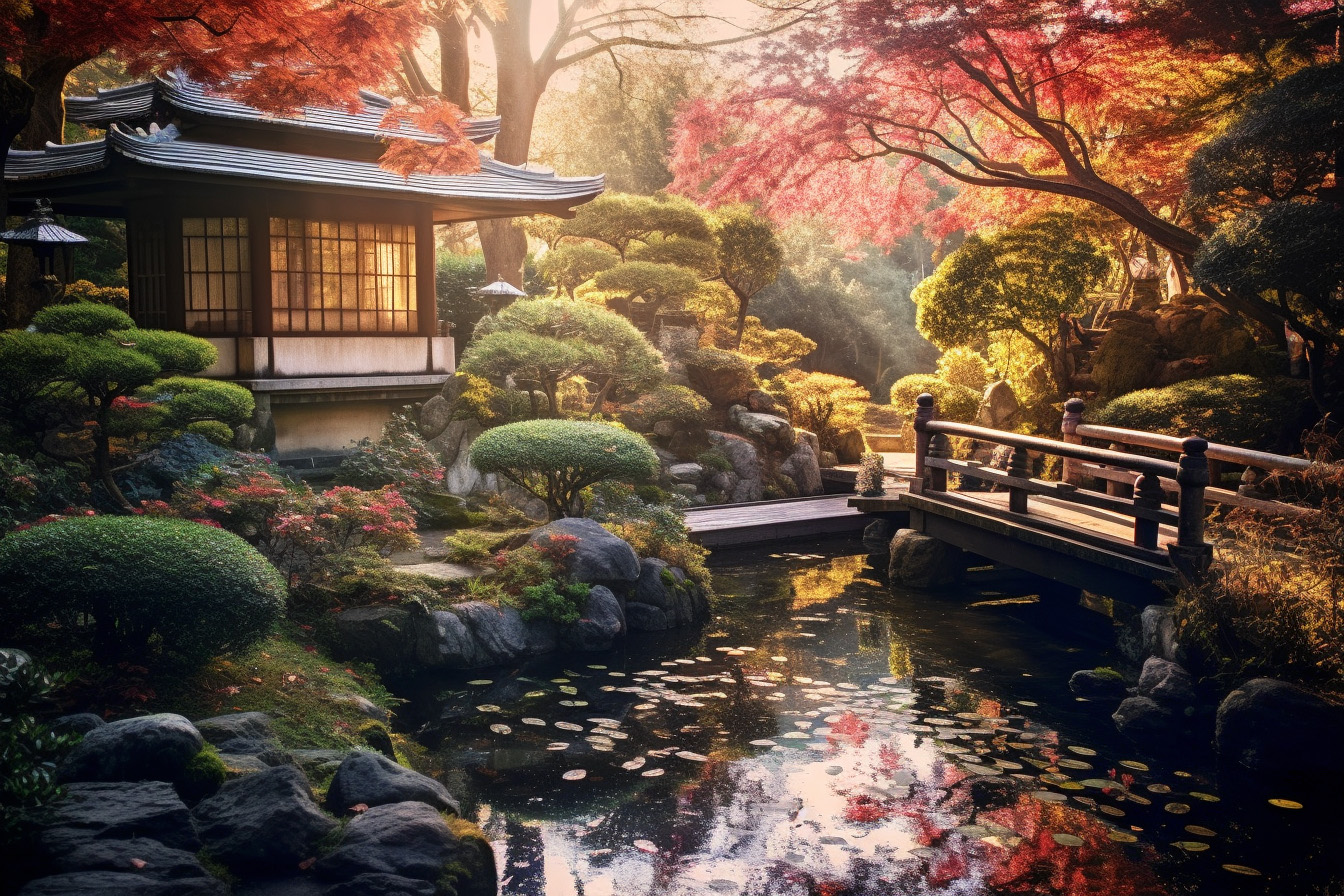Japan, an archipelago known for its cultural richness, scenic beauty, and technological advancements, holds another noteworthy distinction: the nation’s impressive longevity and health. With one of the world’s highest life expectancies, Japan has often intrigued researchers, health enthusiasts, and ordinary people. While many factors contribute to this phenomenon, one key element is the culture’s inherent healthy habits. The Japanese daily engages in routines deeply rooted in tradition that foster holistic well-being.
These practices beautifully intertwine with daily life, from daily therapeutic baths to the chronic consumption of balanced meals. But it’s not just about individual activities; these communal habits promote a sense of togetherness and societal health. This article delves into seven healthy habits that define the Japanese lifestyle and inspire anyone seeking a path to better health and longevity.
1. Taking a Bath Daily
Immersing oneself in the relaxing waters of a bath is a ritual in Japan that goes beyond basic hygiene practices. Every day, people of all ages enjoy baths, not only for cleanliness but also for therapeutic purposes. A long, warm soak relaxes tense muscles like a gentle massage after a tiring day. Beyond relaxation, it also promotes metabolism, turning the body into a more efficient machine.
This practice helps to excrete toxins from the body, ensuring a healthy internal environment. Those suffering from everyday aches and pains, such as back pain and stiff shoulders, find relief in the comforting heat of daily baths. For instance, older adults in Japan often attribute their flexibility and reduced joint pains to this habit of daily warm baths.
2. Cleaning Daily
Cleanliness holds a significant place in Japanese culture, deeply interwoven with the principles of Shintoism. Japanese people make it a point to keep their environment—be it their homes, workplaces, or public spaces—tidy and hygienic. For instance, it’s common to see Japanese students cleaning their classrooms, a practice known as ‘osoji.’ This habit contributes to a healthier lifestyle and fosters respect for shared spaces. The cleanliness seen throughout Japan, from sparkling streets to spotless homes, is a testament to this daily habit.
3. Special Daily Exercise – Rajio Taiso
Japan’s unique morning exercise routine, Rajio Taiso, or radio calisthenics, combines health and harmony. Broadcast on the radio every morning, people across the country, from school children to company employees, participate in this community-wide fitness activity. This routine, consisting of stretches and movements set to music, can be performed in schoolyards, parks, and office spaces before work begins. Regular practice of Rajio Taiso is one of the keys to the impressive overall health and longevity of the Japanese populace.
4. Getting Up Early
In Japan, often called the Land of the Rising Sun, waking up early is a widespread practice. Many people start their day at sunrise, tuning their bodies to nature’s clock. Early risers can be seen all over Japan, from older people practicing Tai Chi in parks to workers heading to their jobs. Morning sunlight helps reset the body’s natural circadian rhythms and sets a positive tone for the day, increasing productivity and mental well-being.
5. Eating Japanese Food
The Japanese diet, characterized by its balanced nutrition, plays a significant role in promoting health. Traditional meals, such as a simple breakfast of steamed rice, miso soup, grilled fish, and pickled vegetables, offer a harmonious blend of carbohydrates, proteins, vitamins, and minerals. Fermented foods, such as natto and pickled vegetables, are essential to these meals, promoting digestive health. The low obesity rates and high life expectancy in Japan can largely be attributed to their nutrition-rich food culture.
6. Drinking Matcha
Traditionally, Japanese people have been savoring matcha, a finely ground powder of specially grown and processed green tea. Although less common among modern urban dwellers, drinking matcha remains prominent in more traditional settings and among the older population. The traditional Japanese tea ceremony, or ‘chanoyu,’ centers around the preparation and offering of matcha. With its rich nutritional content, including minerals, dietary fibers, and powerful antioxidants like catechins, matcha is a beverage that marries tradition with health benefits.
7. Hiking
The landscape of Japan, graced with abundant mountains, naturally fosters a hiking culture. On weekends, it’s common to see families, friends, and solo adventurers heading for the trails. Mount Takao, a popular hiking spot near Tokyo, often teems with hikers of all ages. Hiking is a full-body workout that strengthens the lower body, enhances cardiovascular health, and promotes overall physical fitness.
Conclusion
When observing these seven practices, a common theme emerges – health and longevity in Japan aren’t merely about the absence of illness; they represent a comprehensive, holistic lifestyle deeply ingrained in the cultural fabric. Each habit, from the soothing daily baths to the active pursuit of hiking, reflects an intrinsic respect for balance, cleanliness, and harmony with nature.
Japan’s impressive life expectancy is a testament to the power of these daily practices. Despite the modernization and fast-paced living that characterize much of Japan today, these age-old traditions persist, weaving a resilient thread of wellness through the country’s societal tapestry.
Incorporating these elements into our lifestyles could help us forge our path to wellness and longevity. Whether waking up early to align our bodies with nature’s clock or adopting a more balanced diet, these small changes can significantly impact us. As we reflect on these insights, let’s consider how we might adapt these practices, drawing inspiration from Japan’s culture of health and longevity, to enhance our well-being and enrich our lives.
